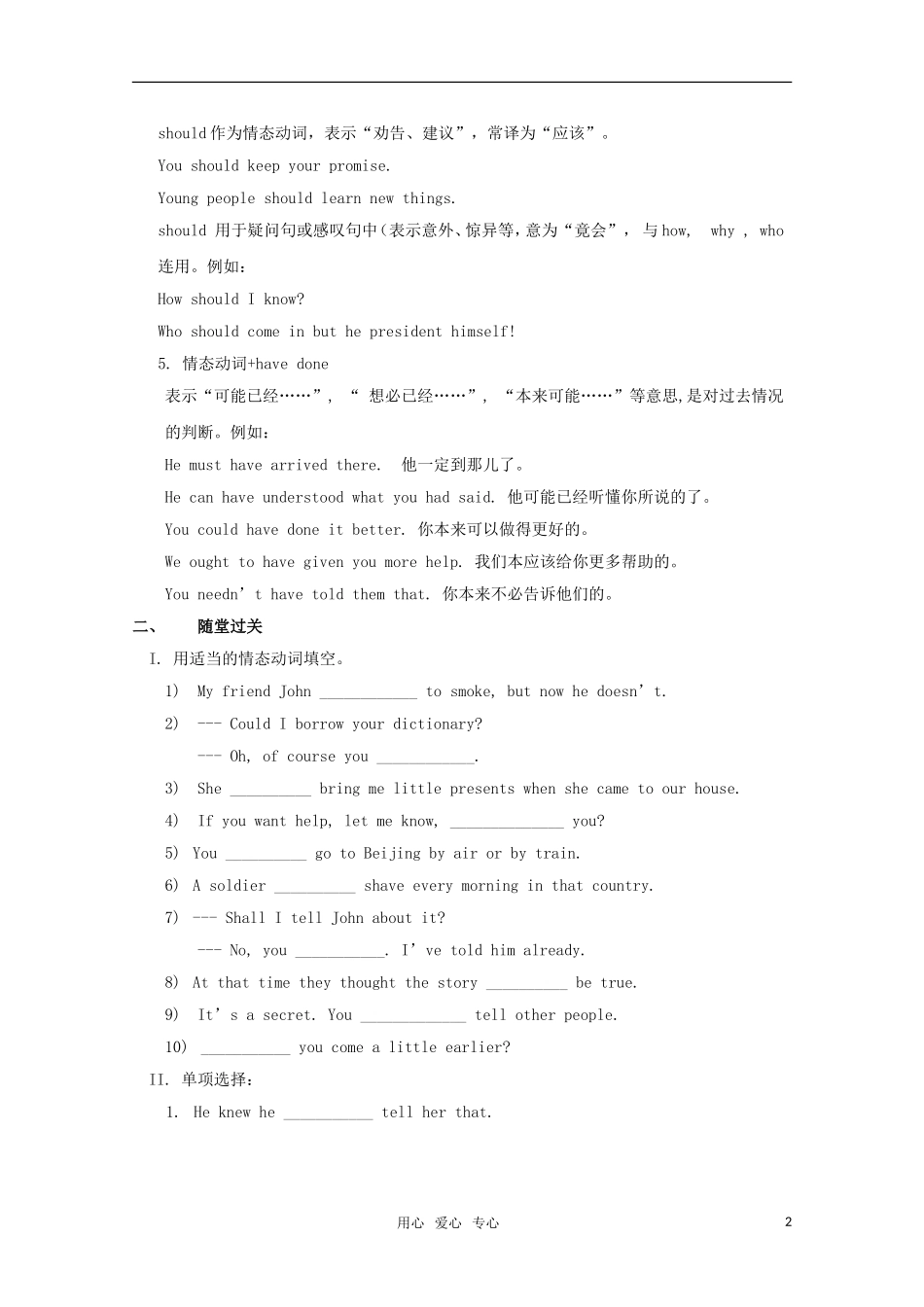Module 2 Sporting Event Grammar and usage---学案 一、快捷识记情态动词表示说话人对某一动作或状态的态度,认为“可能”、“应当”、“必要”等等,没有人称和数的变化,不能单独作谓语。1. can 与 could I can do it well. 我能做好。 (表能力)She can be free this Sunday. 她这个星期天可能有空。 (表可能性)How can you be so careless! 你怎么这样粗心! (表惊异)What you told me can’t be true. 你跟我讲的不可能是真的。 (表怀疑) Could you give me some help? 你可以帮帮我吗? ( 委婉提问) 2. may 与 might May I come in? 我可以进来吗? ( 表允许) 在回答 may 的问句时,要尽量避免直接用 may 或 may not, 而用其他的方式来代替。---May I come in?--- Yes, please. 或 Certainly.等---No, please don’t 或 No, you mustn’t. “ 不行。” He may be at home. 他可能在家。 ( 表可能,也许) If he were here, you might get some help from him. 他要是在这儿,你或许能从他那里得到一些帮助。 ( 在虚拟条件句中表假设 )3. will 与 would will 表示“意志、意愿”,可用于多种人称。在疑问句中用于第二人称时,表示询问对方的意愿或向对方提出请求。例如:We will help him if he asks us to do.Will you give him a message when you see him?would 是 will 的过去式,表示过去时间的“意志、意愿”, 可用于多种人称。若表示说话人的意愿或向对方提出请求,语气比 will 婉转,表示现在时间。例如:They said that they would help us.Would you like some coffee?4. shall 和 should在疑问句中,shall 用来征询对方意见或请求指示、用于第一、三人称。Where shall we wait for you?Shall I start the work now?用心 爱心 专心1should 作为情态动词,表示“劝告、建议”,常译为“应该”。You should keep your promise.Young people should learn new things.should 用于疑问句或感叹句中(表示意外、惊异等,意为“竟会”, 与 how, why , who 连用。例如:How should I know?Who should come in but he president himself!5. 情态动词+have done 表示“可能已经……”, “ 想必已经……”, “本来可能...


